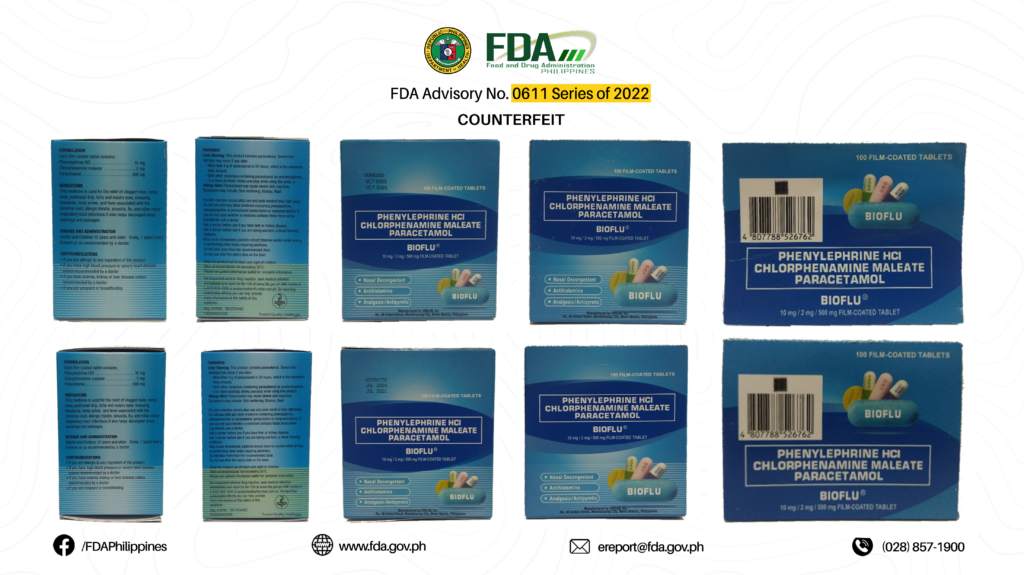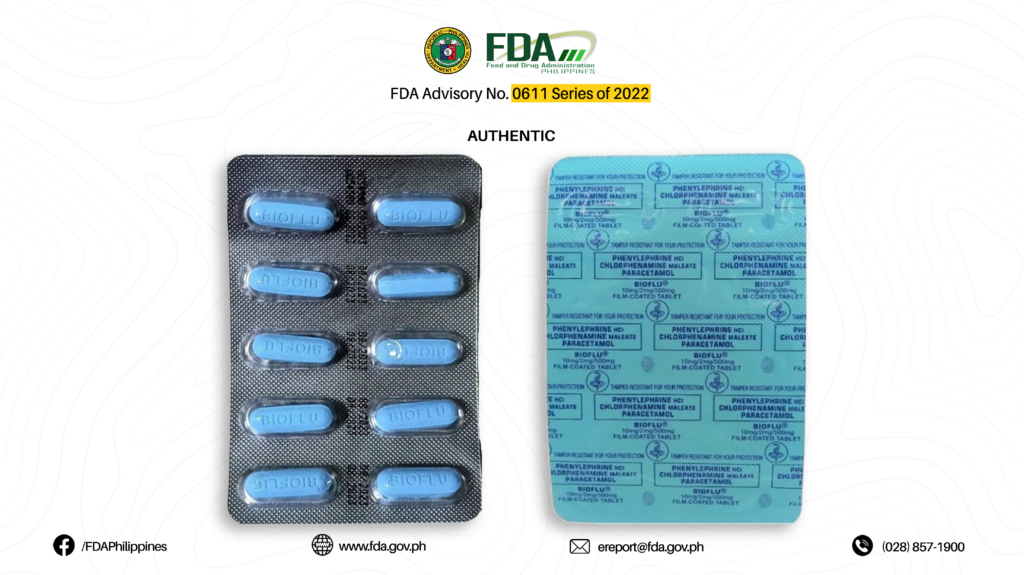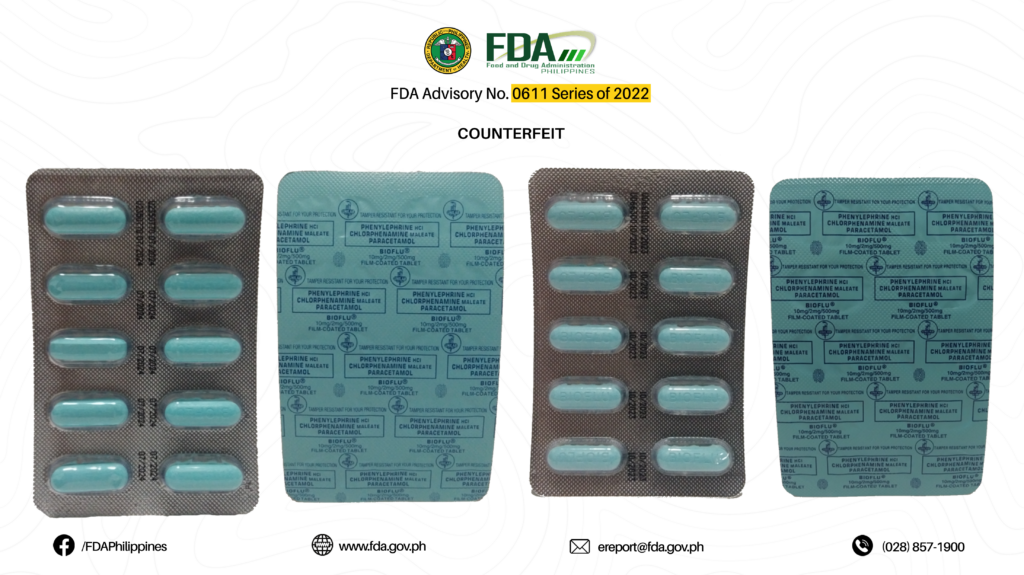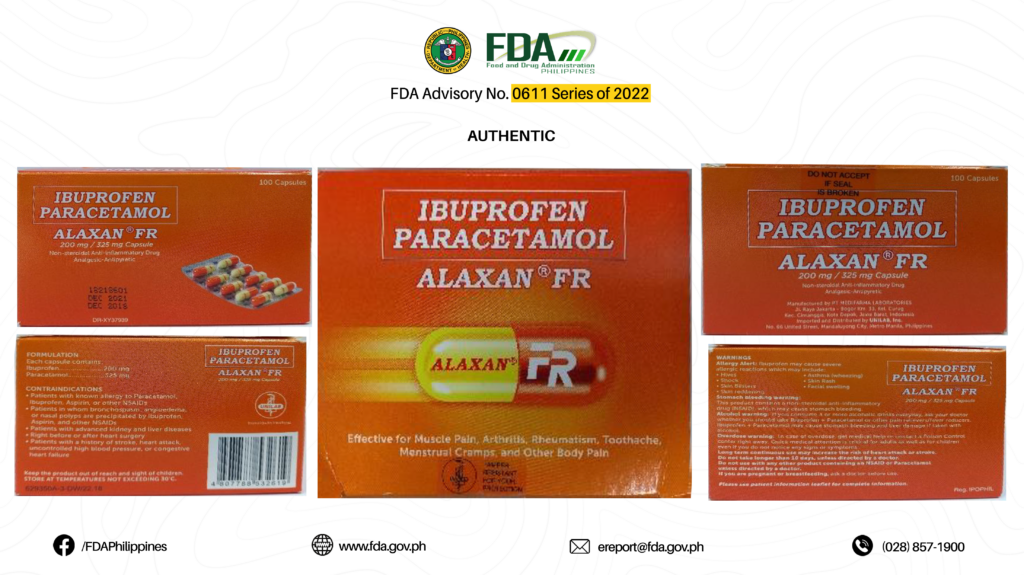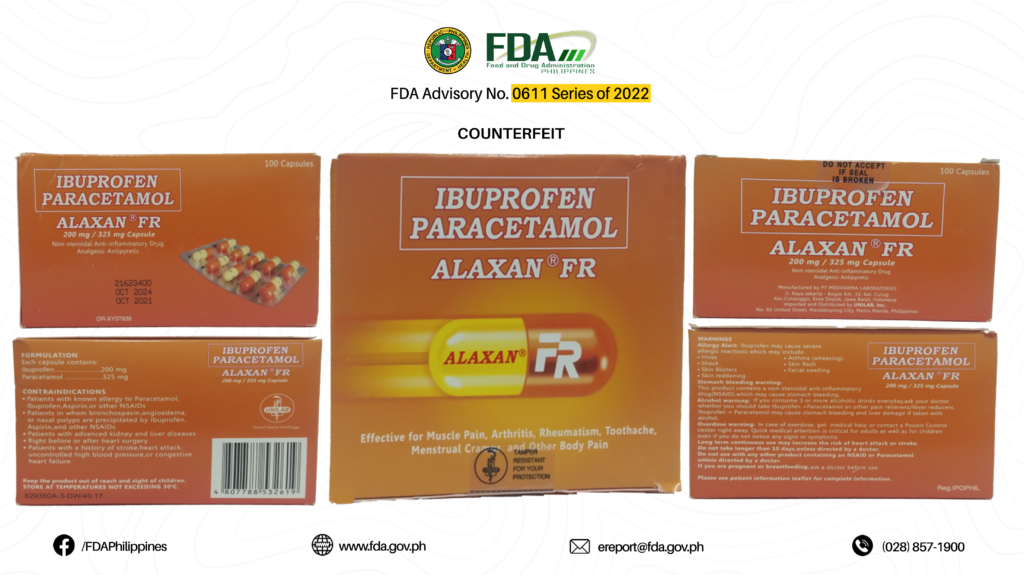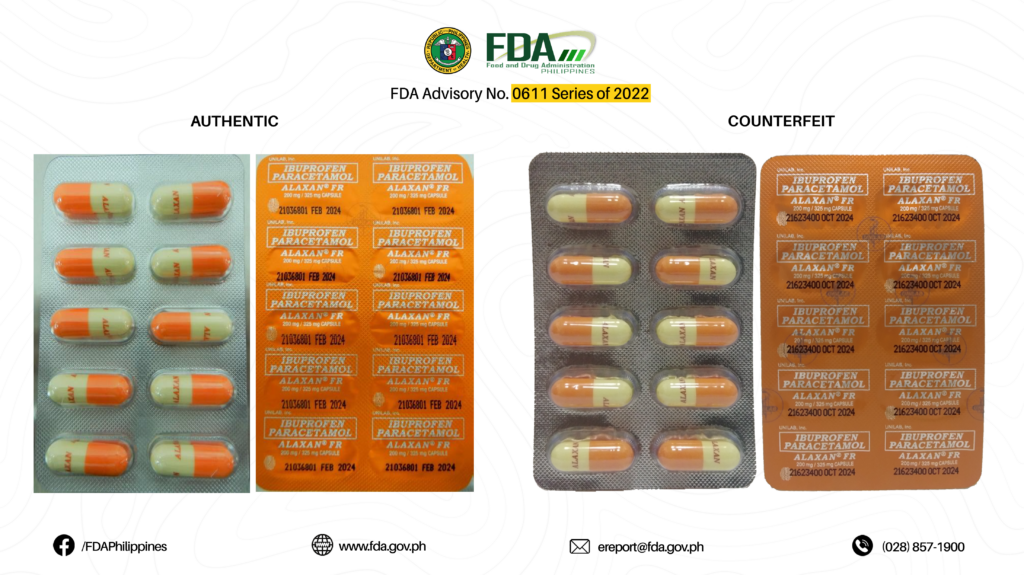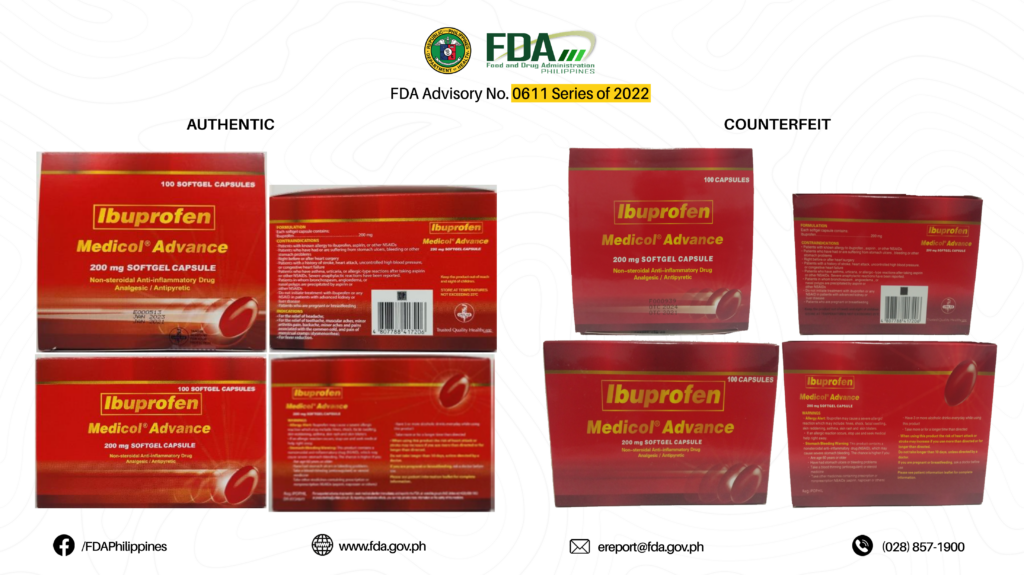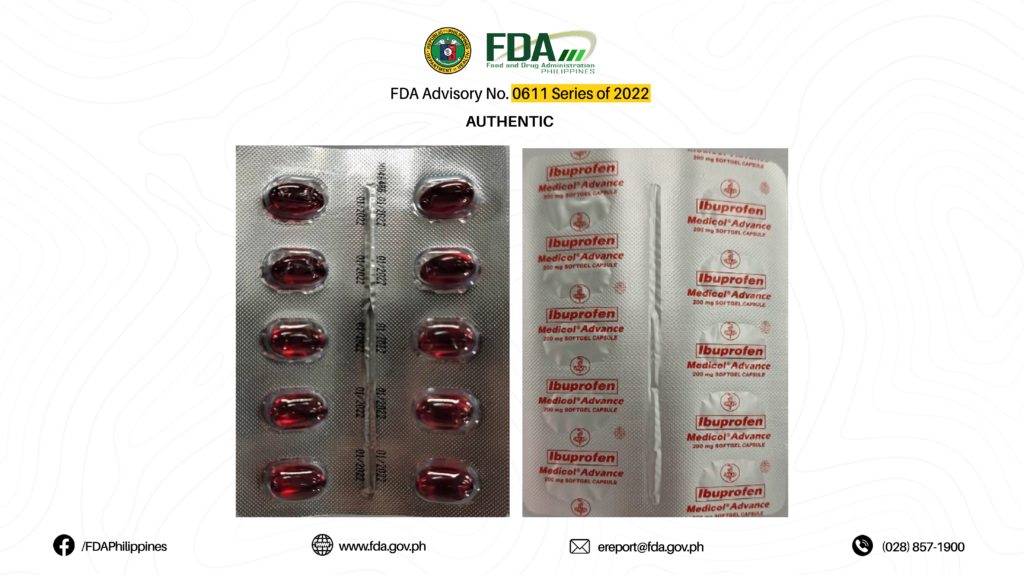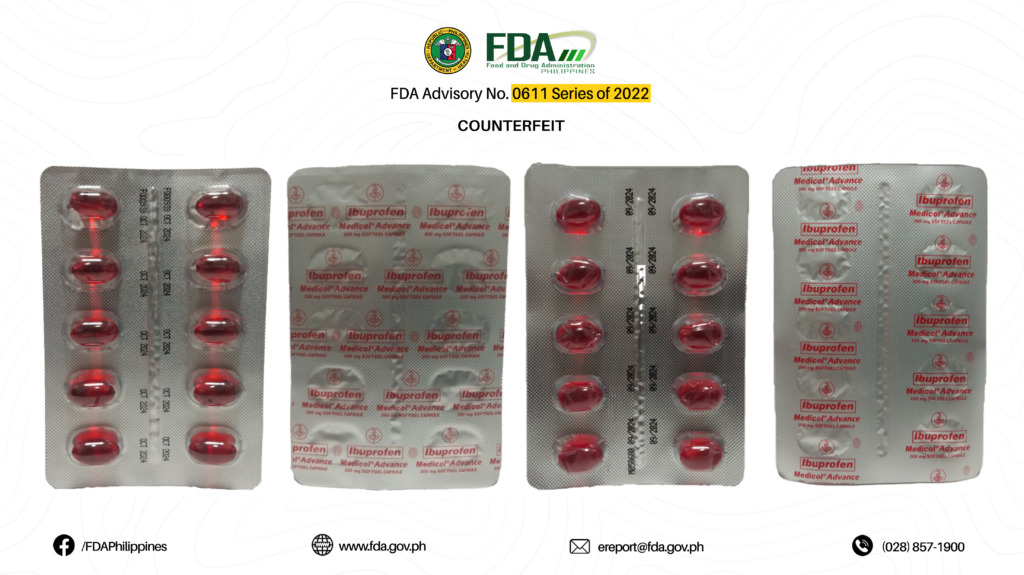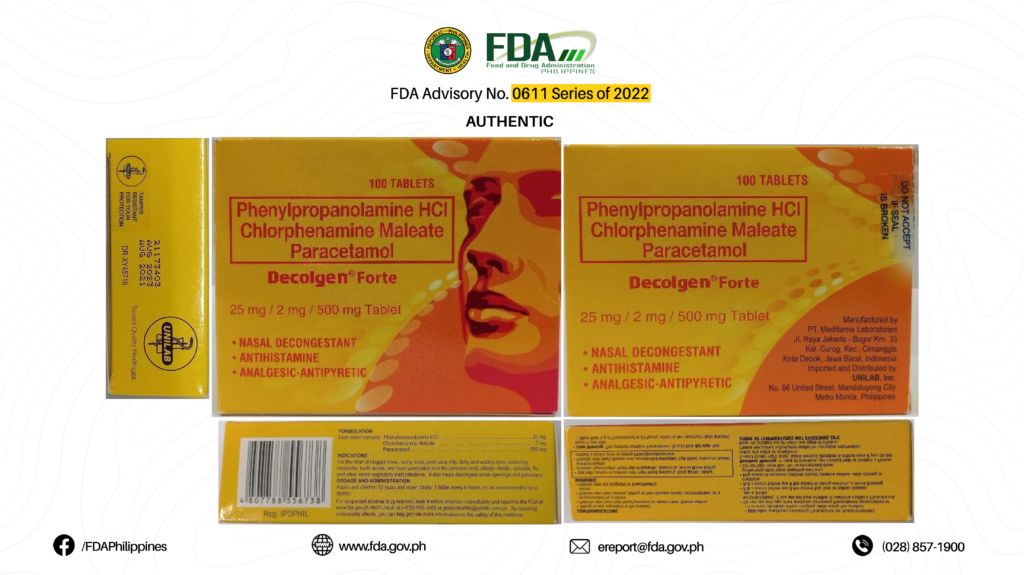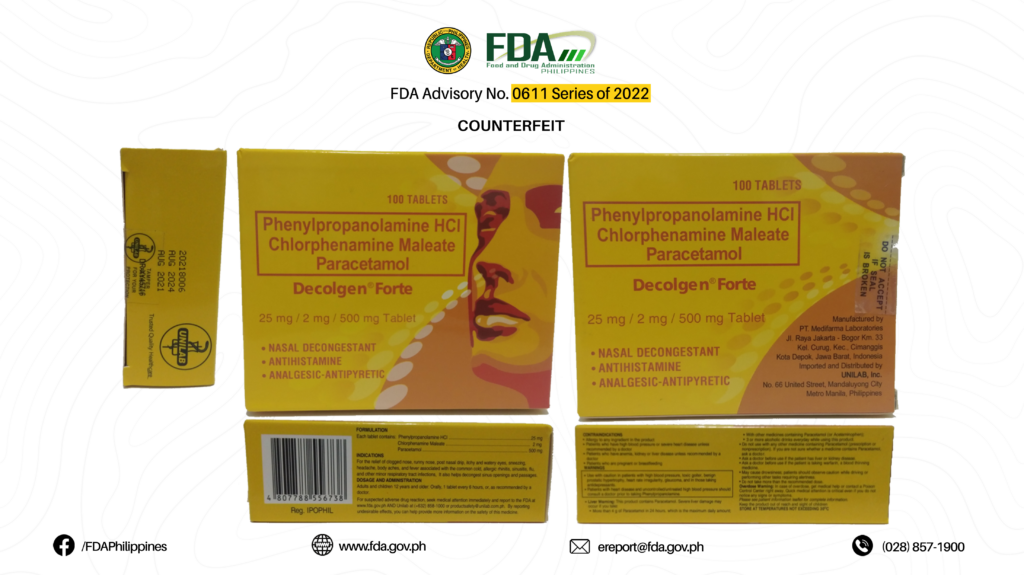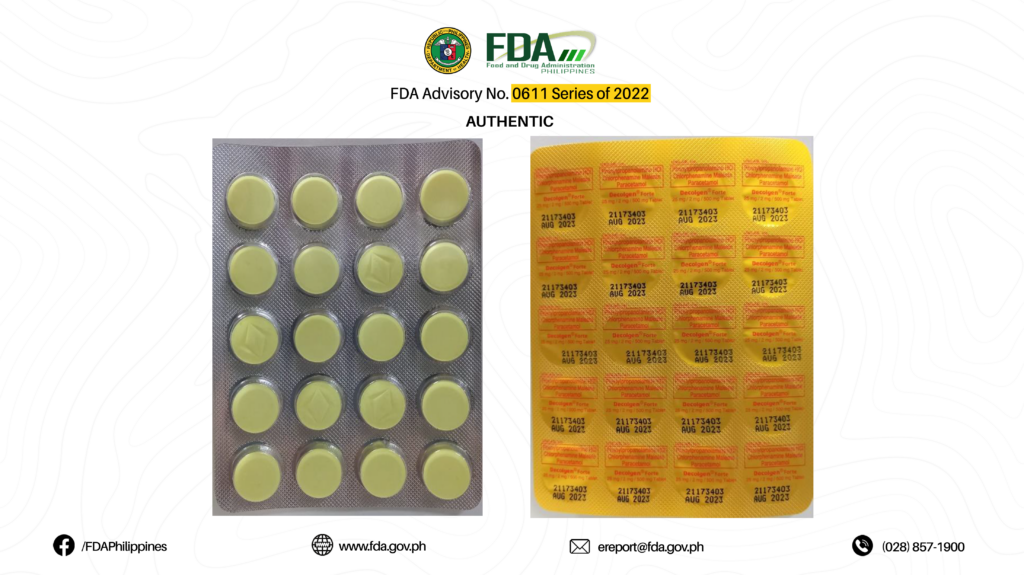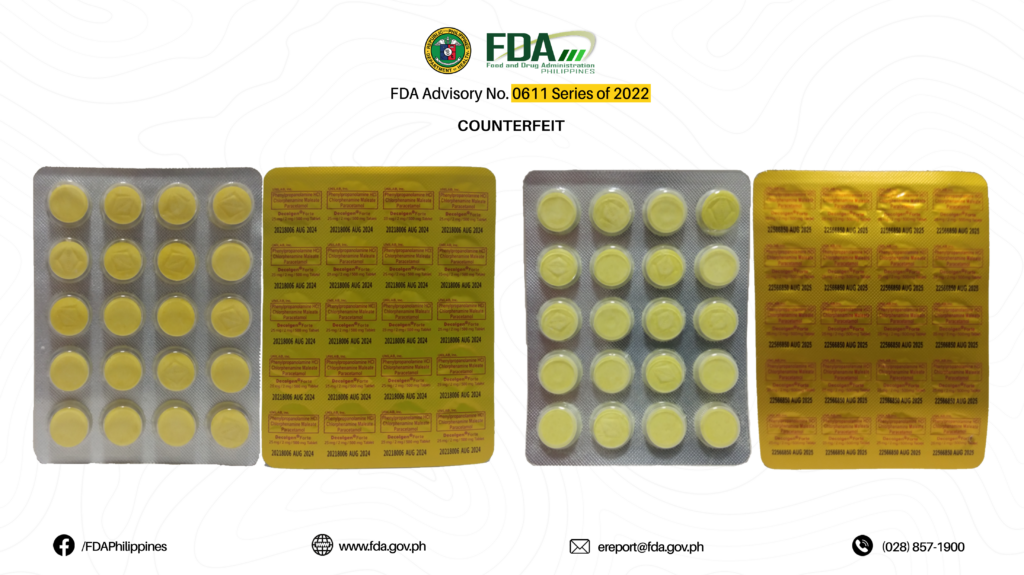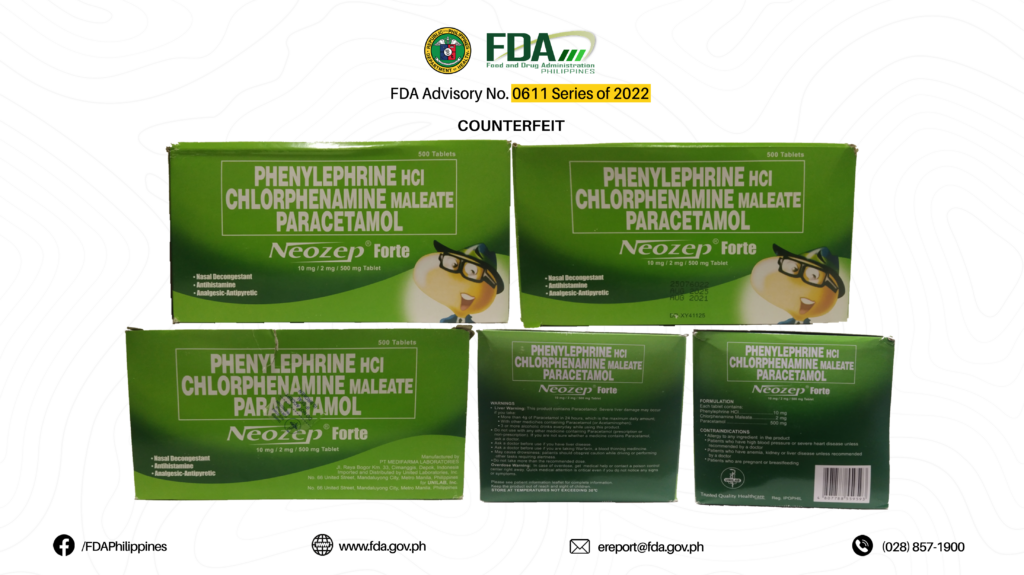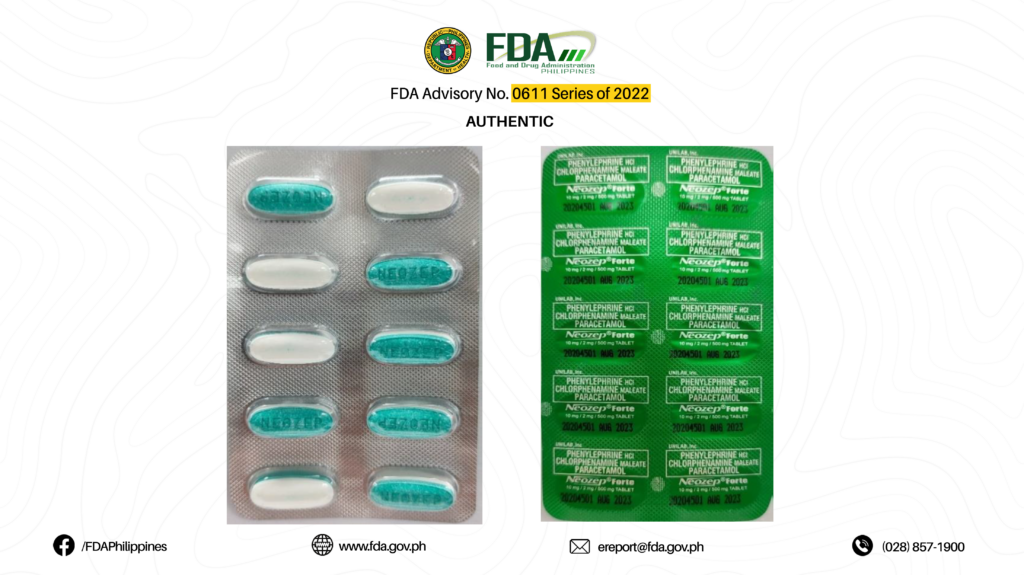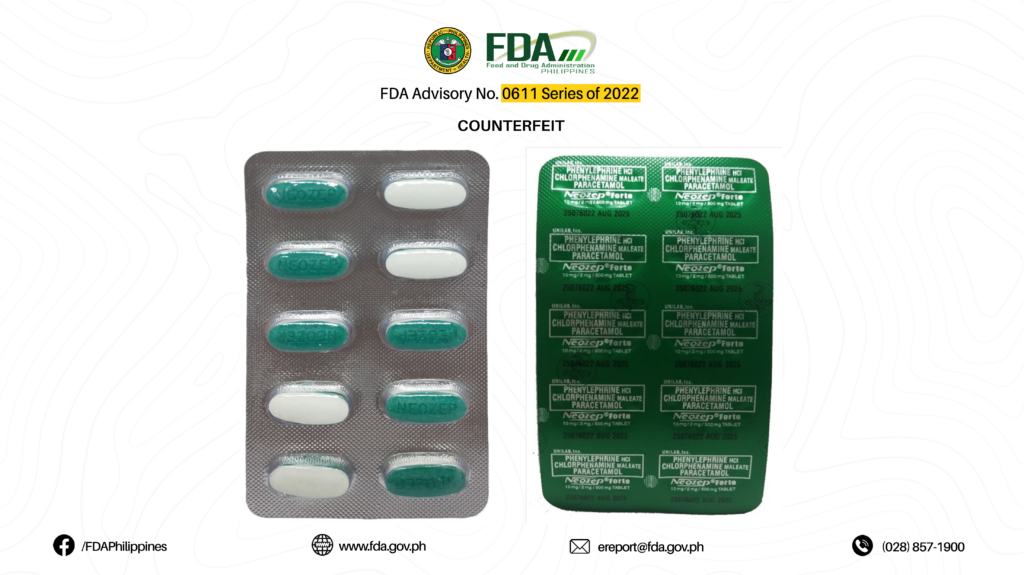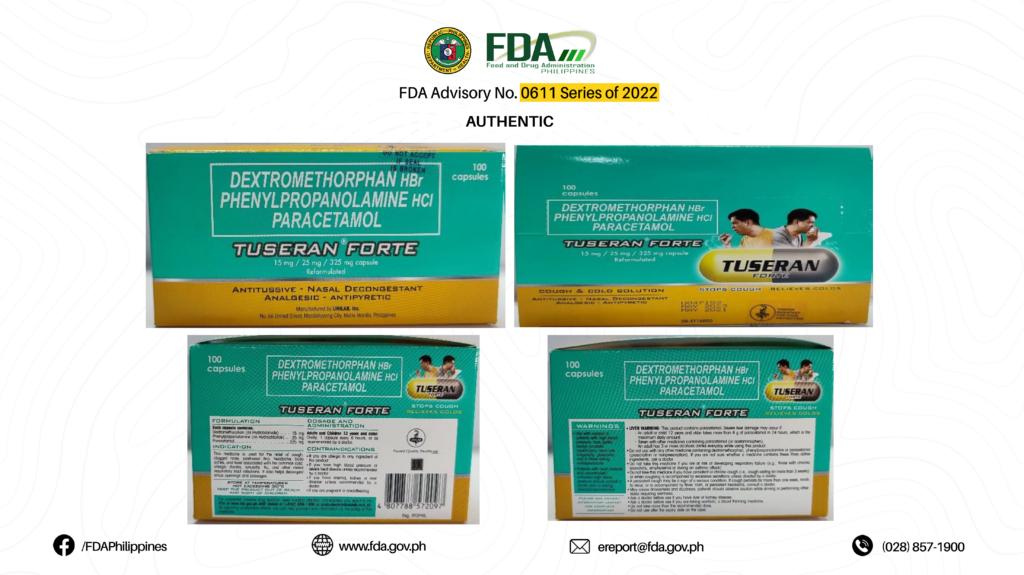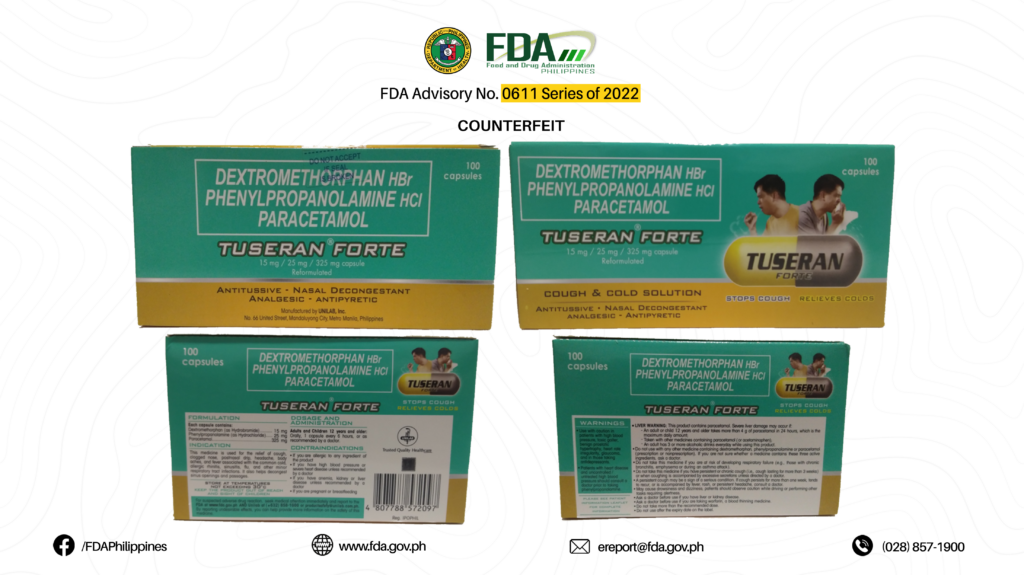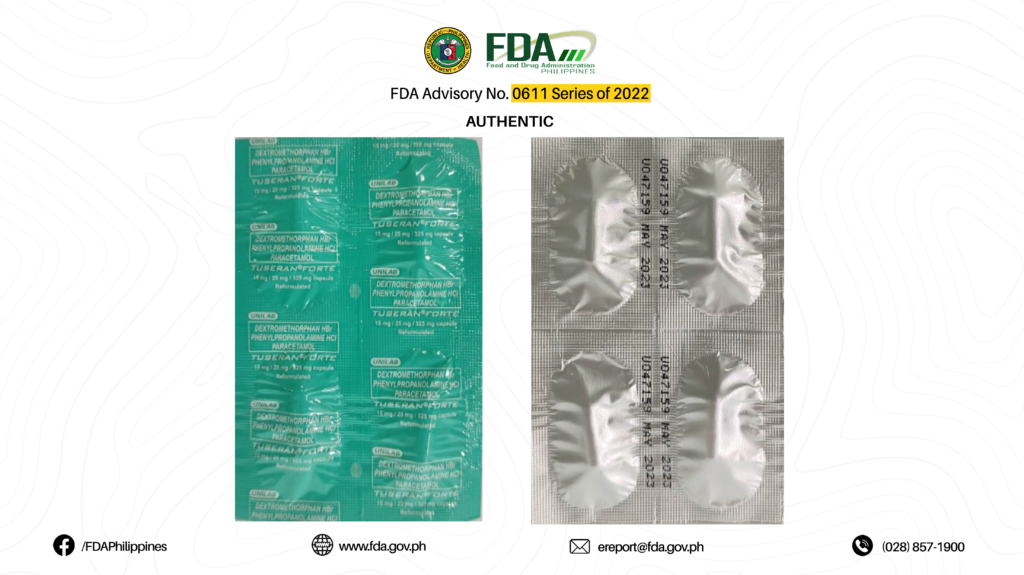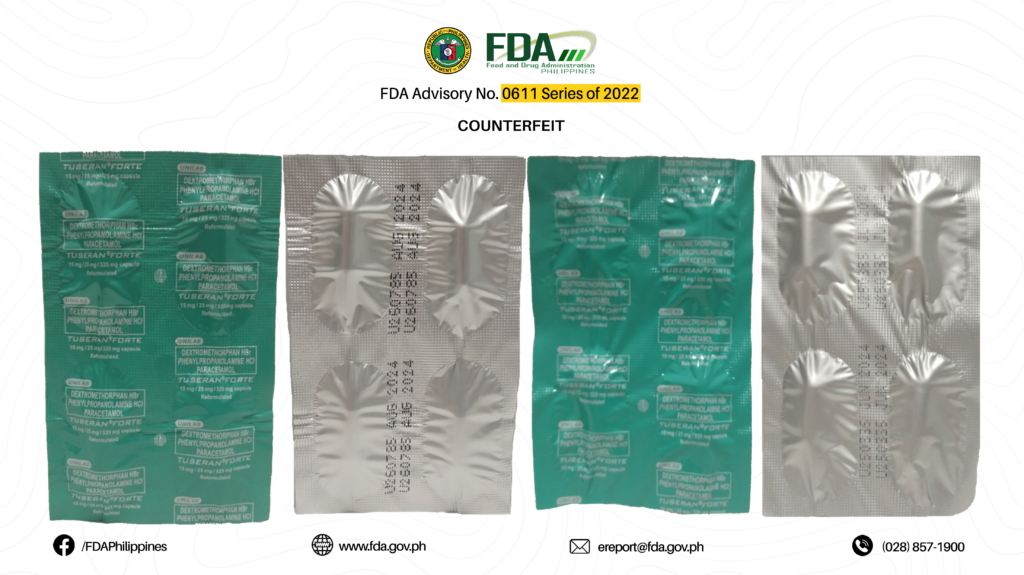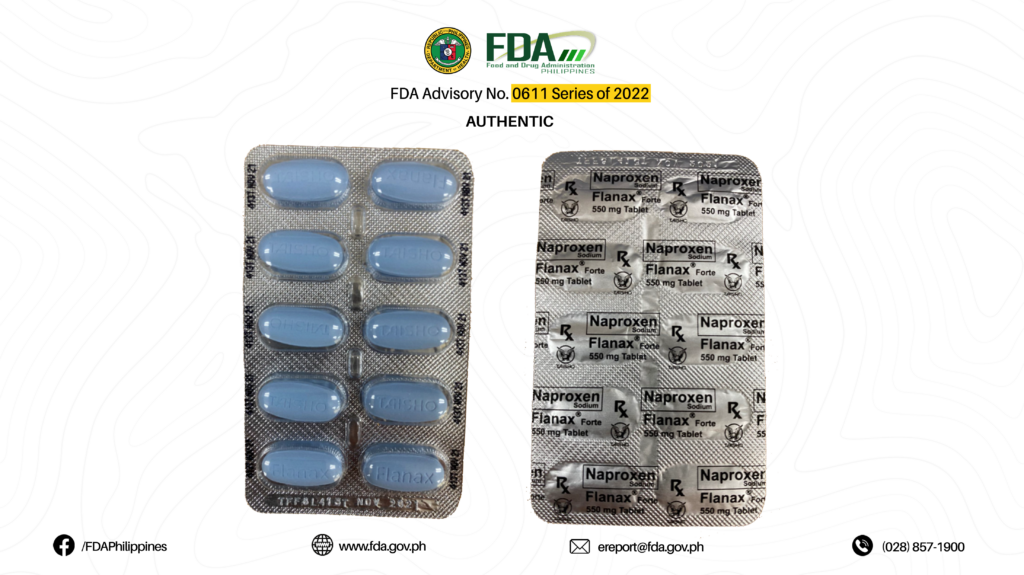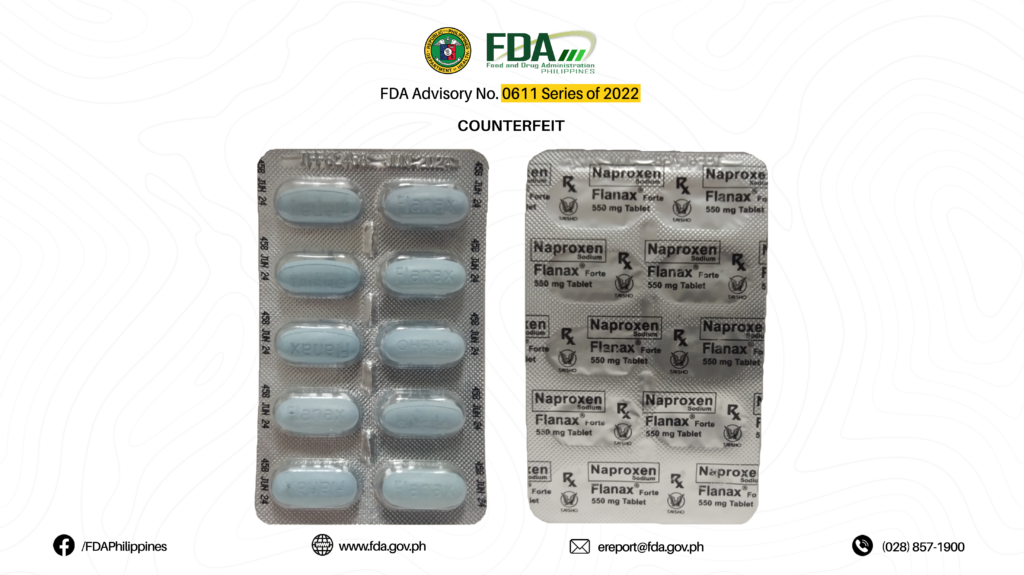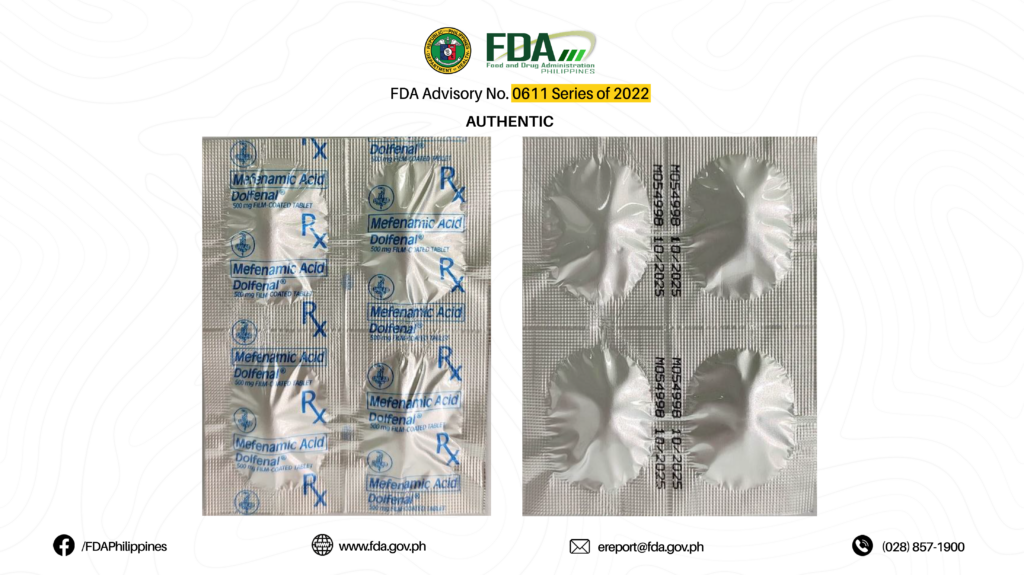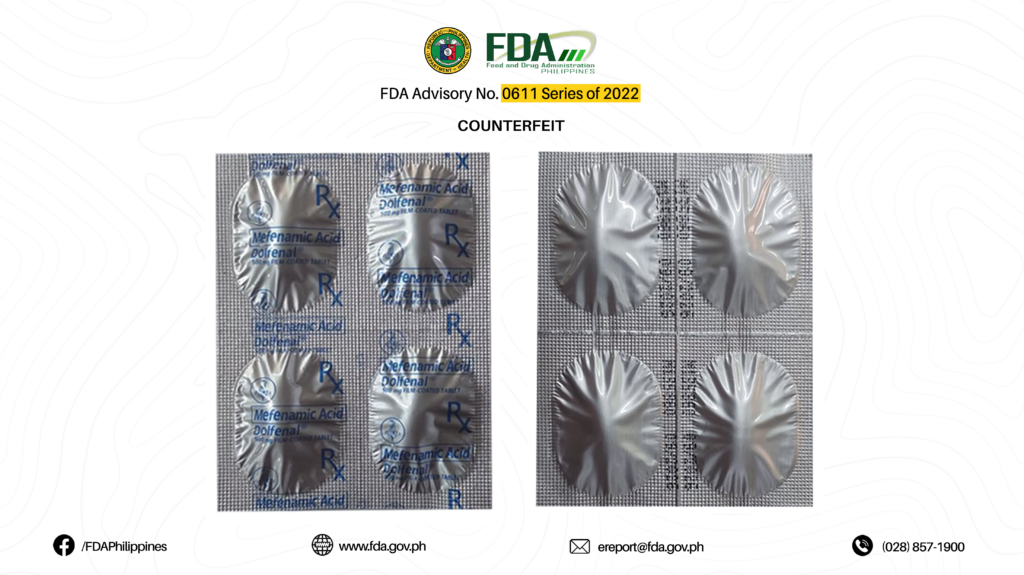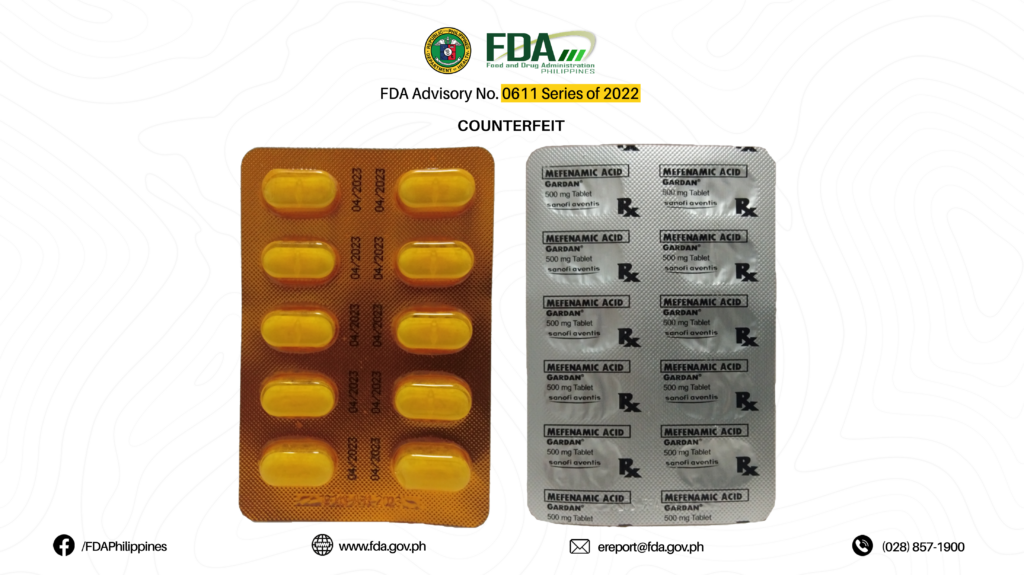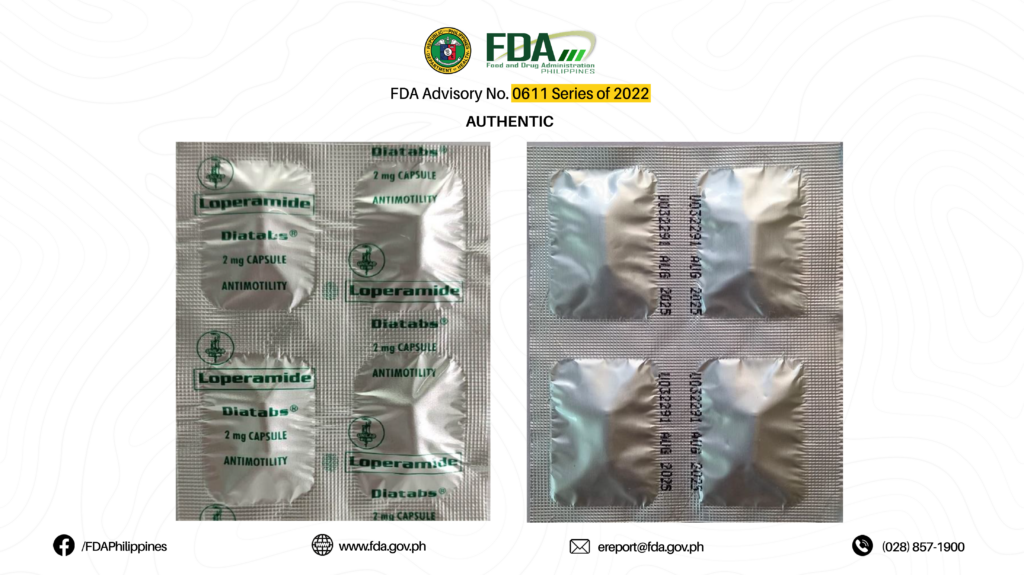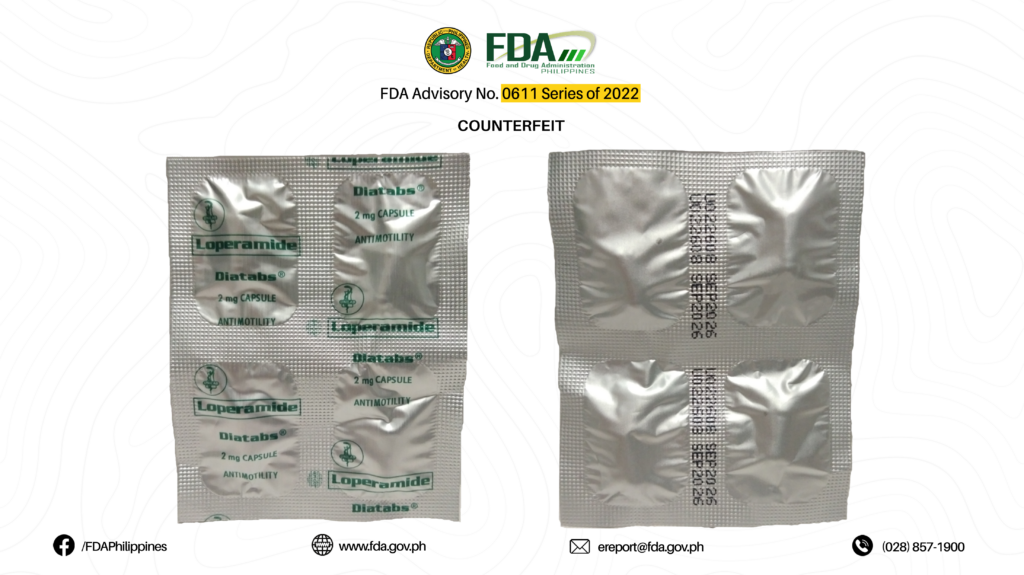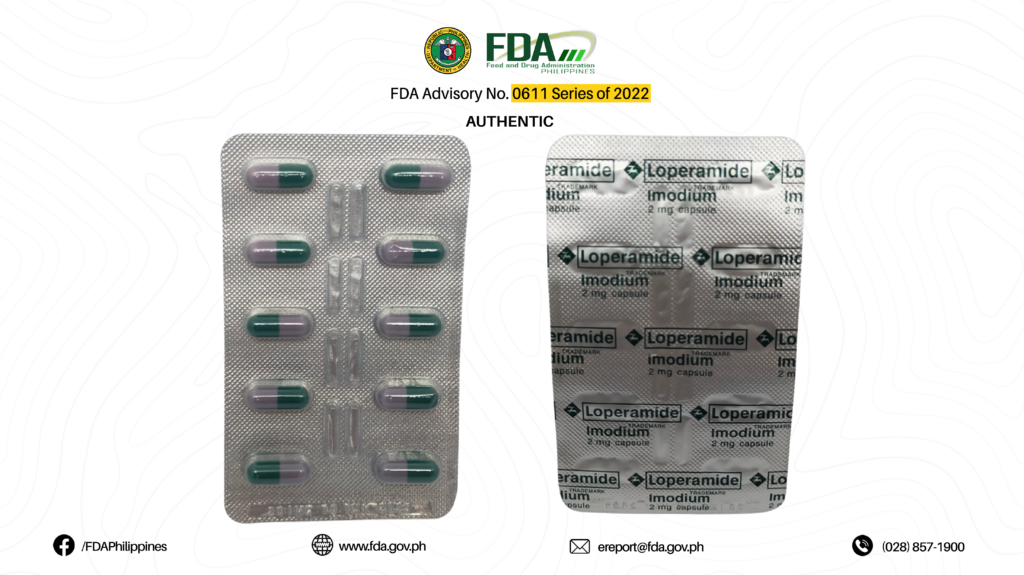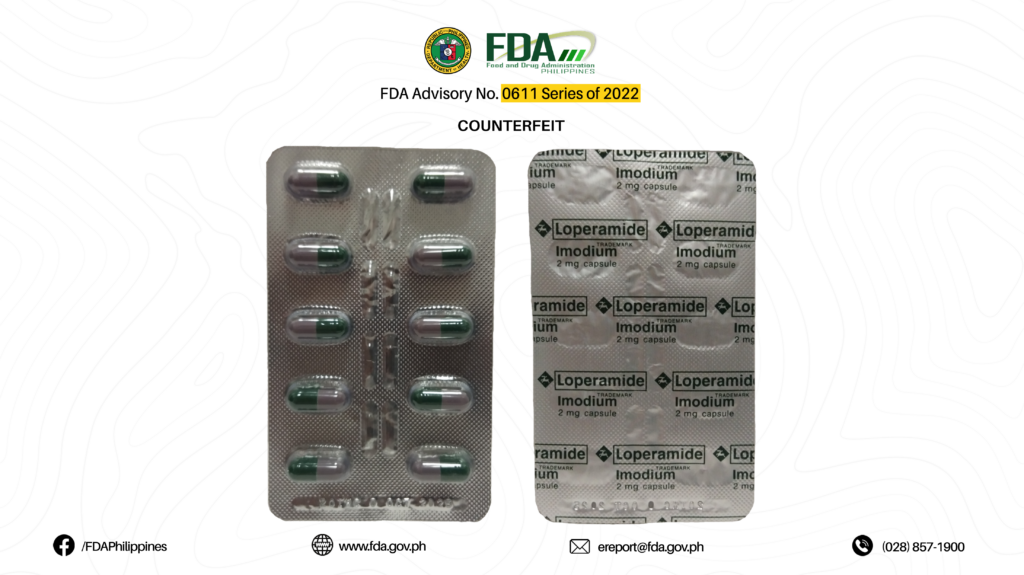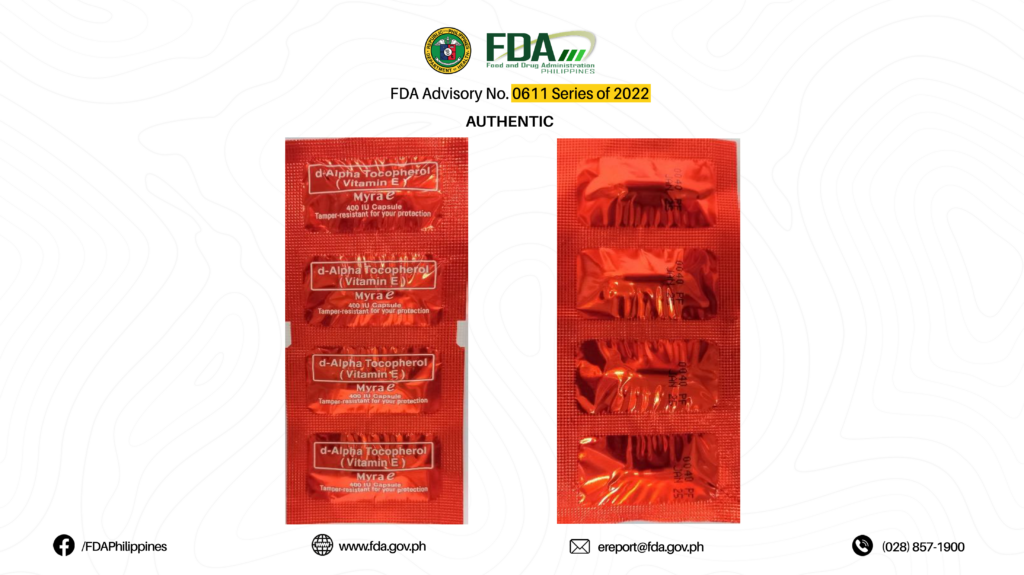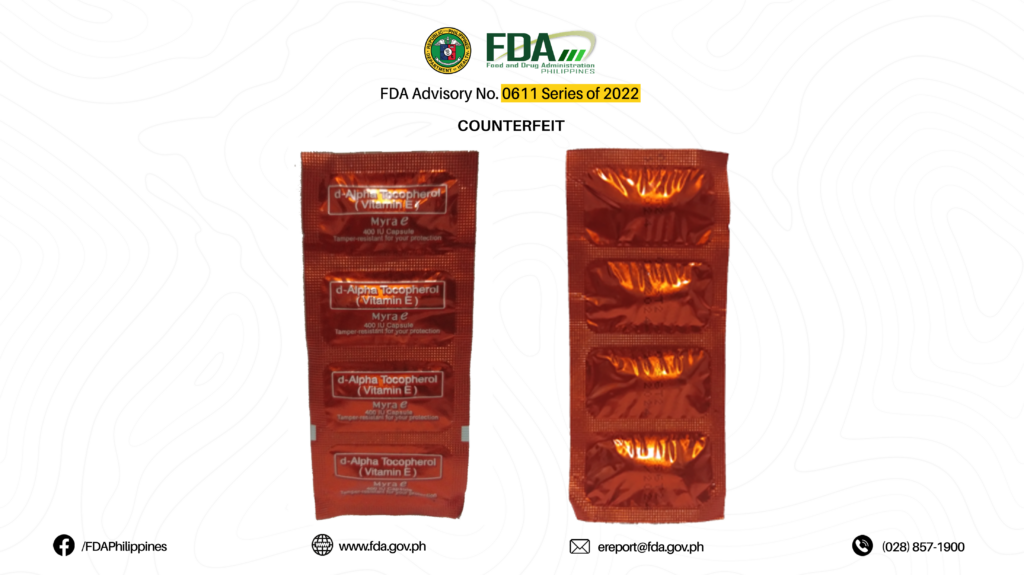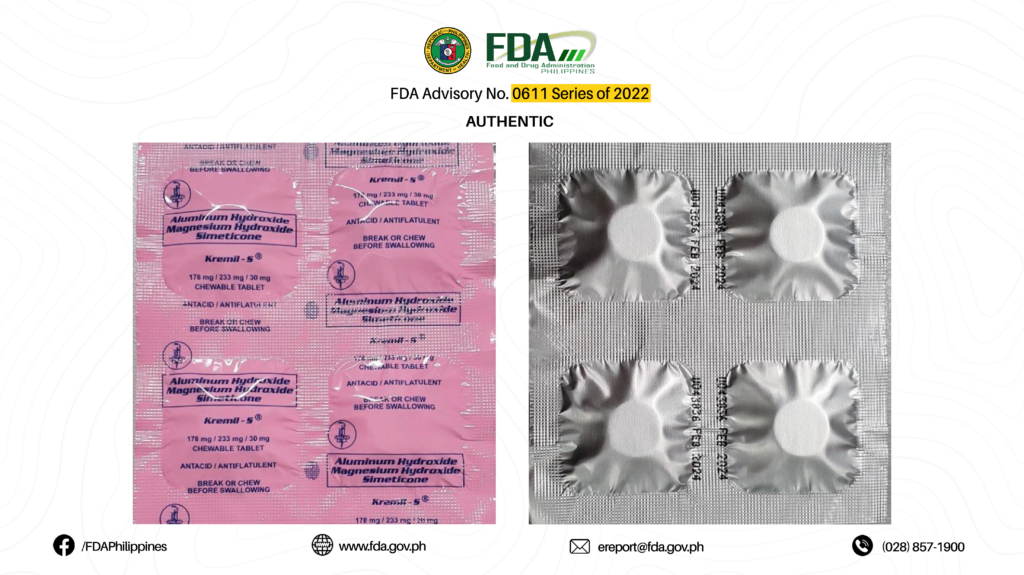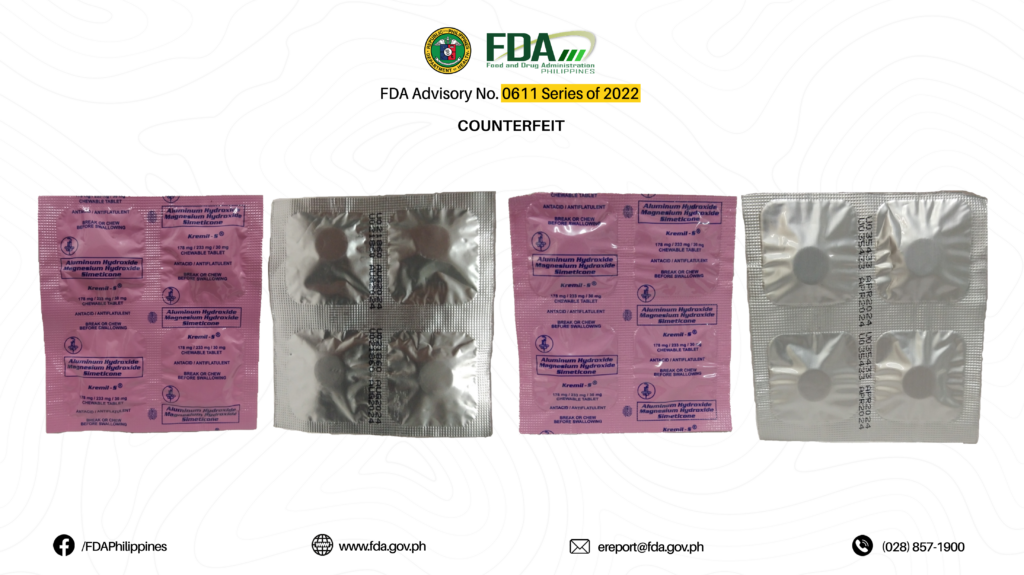The Food and Drug Administration (FDA) has issued a public health warning against the purchase and use of counterfeit drugs versions of several commonly used drug products. These counterfeit drugs pose serious risks to consumers, and it's crucial to recognize and avoid them to safeguard your health.
Counterfeit Drugs to Watch Out For
The FDA has identified several counterfeit drugs in the market. Here is a list of the affected products:
- Phenylephrine HCl / Chlorphenamine Maleate / Paracetamol (Bioflu®) 10 mg / 2 mg / 500 mg Film-Coated Tablet
- Ibuprofen / Paracetamol (Alaxan®FR) 200 mg / 325 mg Capsule
- Ibuprofen (Medicol®Advance) 200 mg Softgel Capsule
- Phenylpropanolamine HCl / Chlorphenamine Maleate / Paracetamol (Decolgen®Forte) 25 mg / 2 mg / 500 mg Tablet
- Phenylephrine HCl / Chlorphenamine Maleate / Paracetamol (Neozep® Forte) 10 mg / 2 mg / 500 mg Tablet
- Dextromethorphan HBr / Phenylephrine HCl / Paracetamol (Tuseran® Forte) 15 mg / 25 mg / 325 mg Capsule
- Naproxen Sodium (Flanax®Forte) 550 mg Tablet
- Mefenamic Acid (Dolfenal®) 500 mg Film-Coated Tablet
- Mefenamic Acid (Gardan®) 500 mg Tablet
- Loperamide (Diatabs®) 2 mg Capsule
- Loperamide (Imodium®) 2 mg Capsule
- D-Alpha Tocopherol (Vitamin E) (Myra E) 400 IU Capsule
- Aluminum Hydroxide / Magnesium Hydroxide / Simeticone (Kremil-S®) 178 mg / 233 mg / 30 mg Chewable Tablet
Health Risks of Counterfeit Drugs
Counterfeit drugs are not just ineffective; they can be downright dangerous. They often contain incorrect dosages, wrong ingredients, or harmful substances that can lead to serious health complications. The use of such drugs can result in treatment failure, adverse drug reactions, and potentially fatal consequences.
Consumer Guidance: Stay Safe
To protect yourself and your loved ones, always purchase medications from FDA-licensed establishments. Avoid buying drugs from unverified sources, especially online platforms that might not follow regulatory standards.
Legal Implications for Sellers
Selling or distributing counterfeit drugs is illegal and punishable under Republic Act No. 9711 (the Food and Drug Administration Act of 2009) and Republic Act No. 8203 (the Special Law on Counterfeit Drugs). Establishments caught violating these laws will face severe penalties.
How to Verify Drug Authenticity
Consumers and healthcare professionals can verify if a product is registered with the FDA using the FDA Verification Portal at verification.fda.gov.ph. This portal allows users to check the legitimacy of their medications quickly and efficiently.
Reporting and Regulatory Actions
Local Government Units (LGUs) and Law Enforcement Agencies (LEAs) are urged to ensure these counterfeit products are not sold in their jurisdictions. If you encounter any suspicious drug products, report them to the FDA through their online reporting facility, eReport, at www.fda.gov.ph/ereport or via email at [email protected]. You can also contact the Center for Drug Regulation and Research at (02) 8809-5596.
Spotting Counterfeit Drugs
Unilab, a trusted pharmaceutical company, provides the following tips to identify fake medical products:
- Color Discrepancies: Fake drugs might have colors that are too light, too dark, or unusual.
- Size and Shape: Counterfeit drugs can differ in size or shape from genuine ones.
- Smell and Cleanliness: Unusual smells, mold, or dirt on the drugs are red flags.
- Packaging Errors: Look for misspelled words, grammatical mistakes, or missing expiration dates and lot numbers.
- Security Seals: Counterfeit drugs often have tampered, damaged, or poorly printed security seals and packaging.
Efforts to Combat Counterfeit Drugs
In an effort to crack down on counterfeit drugs, law enforcement agencies have been actively investigating and shutting down illegal retail stores selling these products. In 2022, the Department of the Interior and Local Government directed local governments to pass ordinances banning the sale of medications in unlicensed retail stores.
Stay Informed
The rise of counterfeit drugs is a significant threat to public health. By staying informed and vigilant, you can protect yourself and your family from the dangers of fake medications. Always purchase drugs from FDA-licensed establishments, report suspicious products, and stay updated with FDA advisories. Together, we can ensure the safety and efficacy of our healthcare system.
For more information, contact the FDA at [email protected] or visit their website.
Download the Advisory here FDA Advisory No.2022-0611 (7 MB)
